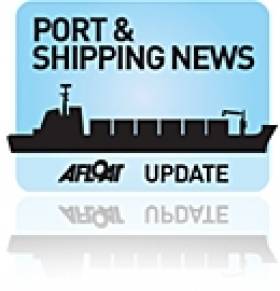Displaying items by tag: Health
Rio 2016: Zika Poses Risk To Female Sailors
#Rio2016 - Female athletes with places in this summer's Olympics have been left with a tough decision to make due to the outbreak of the Zika virus in Rio and elsewhere in Brazil.
And as Sail-World reports, sailors particularly at risk – as the waters of Guanabara Bay make the perfect breeding grounds for mosquitoes that carry the virus implicated in causing severe birth defects.
The Australian Olympic Committee has already advised its female competitors to consider the risks involved as the Zika situation continues to evolve – and it's expected others will follow in their wake as a number of South and Central American countries are recommending a two-year moratorium on pregnancies.
Coming in the same week as the Notice of Race being issued, it's just the latest health and safety setback to hit the Rio 2016 games after long-time concerns over pollution in the sailing and rowing venues in Brazil's largest city.
Sail-World has more on the story HERE.
New Study Links Cold-Water Swimming With Increased Stroke Risk
#Swimming - You might think twice about that dip at the Forty Foot after new research identified a link between swimming in cold water and an increased risk of strokes.
Finnish news website YLE reports on the study by Chinese scientists who followed the habits of 900 members of a winter swimming club over a 30-year period.
And their results indicate a 10% higher risk of heart attacks ad strokes among the swimmers compared to the general population.
"This [study] emphasises the ill-effects of cold, which are well-known," said Prof Hannu Rintamäki of the Finnish Institute for Occupational Health. "Longer-term exposure to cold brings these kinds of results, ie that heart and circulation becomes heavier in cold water."
YLE has more on the story HERE.
Marine Notice on Exemptions from EU Regulations for Recreational Water Craft
#NEWS UPDATE - A recent Marine Notice from the Department of Transport, Tourism and Sport (DTTAS) advises consumers, retailers and manufacturers on the types of craft to which the EU recreation water craft regulations do not apply.
In general recreational craft and related products must meet the essential safety, health, environmental protection and consumer protection requirements of the Recreational Craft Directive as set out in the Recreational Craft Regulations.
However, these regulations do not apply to craft intended solely for racing; canoes and kayaks; gondolas and pedalos; surfboards; historical water craft and replicas; experimental craft and ones built for own use; commercial craft; and a number of others.
These exceptions are however still subject to the EU's General Product Safety Directive.
Complete details are included in Marine Notice No 56 of 2011, a PDF of which is available to read and download HERE.
- Marine Notice
- water craft
- regulations
- EU
- Department of Transport, Tourism and Sport
- DTTAS
- consumers
- retailers
- manufacturers
- recreational craft
- Safety
- Health
- environmental protection
- Recreational Craft Directive
- Recreational Craft Regulations
- racing
- Canoes
- Kayaks
- gondolas
- pedalos
- surfboards
- historical
- replica
Toxic Gases in Cargo Pose 'Substantial Health Risk'
European Union members must solve the problem of toxic gases in shipping cargo, says a new Dutch-based action group.
TGAV (Toxic Gases and Vapors) claims that research suggests more than one in 10 of all cargo containers throughout the EU "may have too high a concentration of hazardous gases or vapours".
The group says that these fumes are likely byproducts of the manufacturing process for a wide range products, from electronics and shoes to wooden furniture, clothing and toys, and even dried fruit.
"One example is the release of vapours from the glue used in sport shoes," it says. "After a three-week sea journey from China to for instance Europe, the concentration of gases and vapours can sometimes reach considerable levels."
The group adds: "The health risks for workers are substantial; in Germany and the Netherlands, several dozen cases of work disability are known in relation to the opening of containers."
TGAV notes that significant problems include the lack of warning labels on such potentially hazardous cargo, and low awareness within the logistics sector regarding the risks involved.
"In Europe, there is growing attention for the problem, but no coherent policy," says the group. "In order to ensure fair competition, a uniform approach should be implemented."
TGAV will host a conference next month in Brussels where the prospect of an EU policy on the problem will be discussed.































































